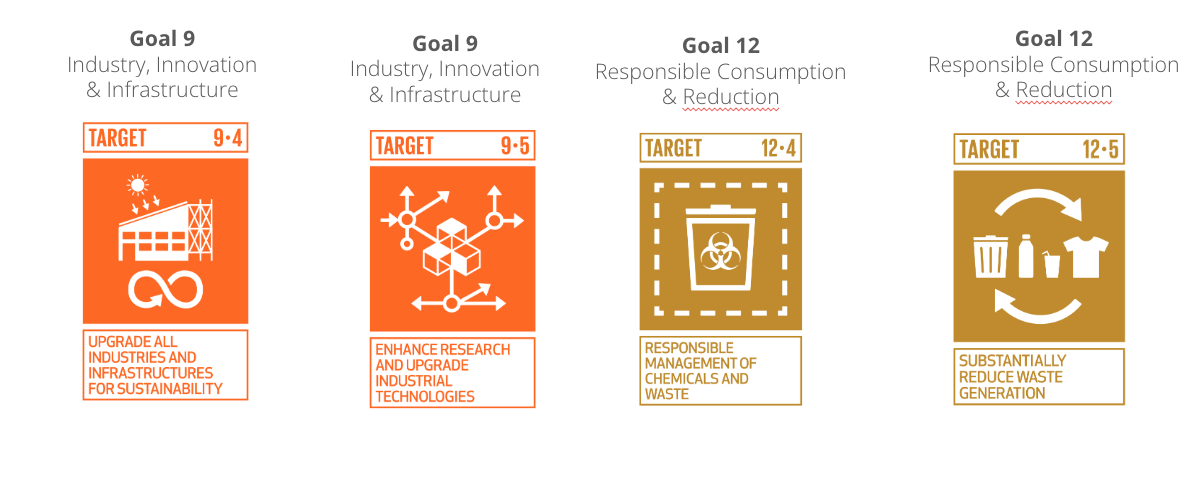
Recycling Market – part 1
A top-line overview of recycling streams and current recycling capabilities in the world, that will help you understand how to create products for a circular economy. Experts and companies offering new solutions for collection and recycling will give you an real understanding of the current end-of-life of your products.
This presentation will focus on mechanical recycling.
In this report, the following UN SDG targets are applicable:

MARKET CONTEXT
Organised Recycling
Most developed countries have a developed a system of general collection and sorting managed by local authorities and sub-contracted to private companies who specialise in waste management (i.e. Veolia, Suez, Casella, Biffa Group, etc.)
Trucks would collect used items on the curbside, then bring them to sorting plant to be separated by material, and then packed in bales to be sent to specific recyclers per material.
This system is managed by local council, cities, county, etc. and the type of waste collected varies greatly per locality. Hence the difficulty to say which product will be recycled in any area. But the general rule of collecting, sorting and recycling works the same way in many developed countries, and in our presentation we will try to give you an understanding of the what gets recycled and why.

Informal recycling
Informal picking and recycling
In most developing countries, the system is based on an informal collection and recycling of packaging. Collection is made by “waste pickers” who then will sell tins, plastics, paper or glass to recycling depots.
They are strongly dependent on the value of waste, and this value fluctuates upon market demand. To give you an example, waste pickers stopped picking used glass in 2020 in South Africa, since all bars and restaurants were closed during the covid crisis. The market didn’t need glass, since the ”drinks industry” had reduced needs, so the value of glass degraded quite strongly.
The other issue is that these people also called “reclaimers” are stigmatised in society and are treated really badly (beaten by population, arrested by police, etc.). But in some countries they contribute to a large value in the recycling chain, and most of the time they can contribute to eliminating the sources of ocean plastic waste, for instance.

